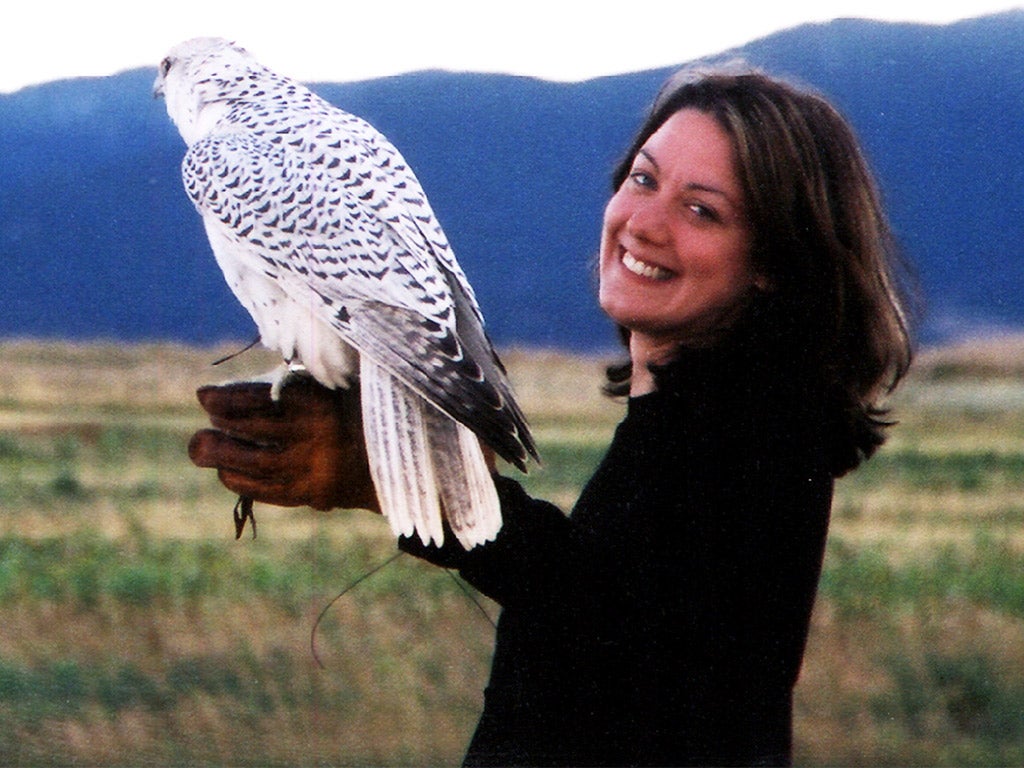A new breed of memoir that soars above the competition; Week in Books

Your support helps us to tell the story
From reproductive rights to climate change to Big Tech, The Independent is on the ground when the story is developing. Whether it's investigating the financials of Elon Musk's pro-Trump PAC or producing our latest documentary, 'The A Word', which shines a light on the American women fighting for reproductive rights, we know how important it is to parse out the facts from the messaging.
At such a critical moment in US history, we need reporters on the ground. Your donation allows us to keep sending journalists to speak to both sides of the story.
The Independent is trusted by Americans across the entire political spectrum. And unlike many other quality news outlets, we choose not to lock Americans out of our reporting and analysis with paywalls. We believe quality journalism should be available to everyone, paid for by those who can afford it.
Your support makes all the difference.It’s been a good week for memoirs (though maybe not for Lena Dunham’s). And for women falconers, though Helen Macdonald is not the first woman to have broached the subject of her Samuel Johnson Prize-winning memoir, H is for Hawk.
Juliana Berners, born in 1388, got there centuries before Macdonald with her work on heraldry, hawking and hunting, The Boke of St Albans, though this wasn’t a memoir but a book of essays on the “gentlemanly” pursuits, to which Berners is believed to have contributed her wisdom on falconry (she was also the first woman known to publish a book on fishing, incidentally).
Macdonald’s invention lies in blending her own story (mourning the death of her father) with that of the goshawk she trained. In this, she is among a group of memoirists who begin with personal experience and channel it to elucidate a larger phenomenon – in this instance, Macdonald both makes a powerful case for endangered nature, and writes the biography of the troubled novelist T H White. The judges said her book “flew” above the others to win the £20,000 prize – the first time that a memoir has claimed the accolade for non-fiction.
Two other books of very different ilks, but both which have strong memoir or autobiographical elements, were on the shortlist. This either says something of the judges, or of the quality of memoirs being written. The Iceberg by Marion Coutts, the widow of The Independent’s late art critic, Tom Lubbock, is not just her own story of grief, but an investigation into the nature of grief itself as well as language, while Alison Light’s Common People: The History of an English Family, is a hybrid social history in which the starting point is Light’s curiosity about her own ancestry; the family tree becomes the means through which a far wider social history is revealed, not unlike Edmund de Waal’s The Hare with Amber Eyes, which won prizes some years ago.
These hybrid memoirs seem at once to be concerned with autobiography, but rise above it, or employ it as a useful prop to access a subject larger than themselves. It is interesting to consider that just as it is getting harder for a writer to sell an old-fashioned “biography” to a publisher, this kind of sideways autobiography is on the ascendancy. Dunham, meanwhile, is part of that group of people who find
themselves defending the “real” version of their own story. Either way, I think I’d probably rather read about goshawks.
Time to leave Amazon’s algorithms on the shelf
An eBook service, Oyster, is introducing a service in which subscribers can recommend and share book titles – so a kind of Spotify for books. Oyster is rolling out its scheme, Book Lists, which will feature lists curated by authors such as Michael Chabon.
It’s a good idea, and so much more preferable to the algorithms used by Amazon and online others, to detect our tastes and pre-empt the next book that we’ll buy. Infuriatingly, the algorithms aren’t always wrong, but that’s not the point. Rather like a browse through the library, we don’t only want to encounter the books we know we’d definitely read, but stumble across the curious ones that we might try out. It’s this sense of discovery that algorithms deny us, and it is one of the reasons we go to book clubs – to encounter the word-of-mouth recommendation and the science or natural history book that we’d never otherwise touch.
Smiley’s dedication: A quartet for one
Jane Smiley has dedicated her latest book, Some Luck, reviewed on page 22, not just to her present husband, Jack Canning, but also the previous three – John Whiston, a then Yale student who she married in 1970, Bill Silag, a historian she married in 1978, and guitarist Steve Mortensen. She thanks them for “decades of patience, laughter, insight, information and assistance”.
Join our commenting forum
Join thought-provoking conversations, follow other Independent readers and see their replies
Comments